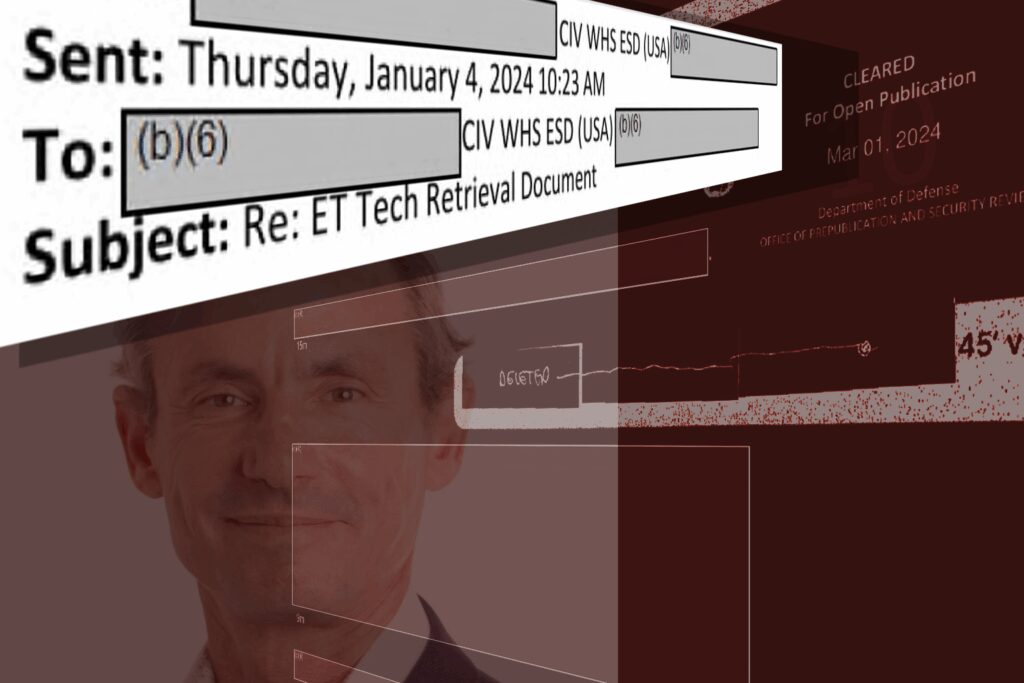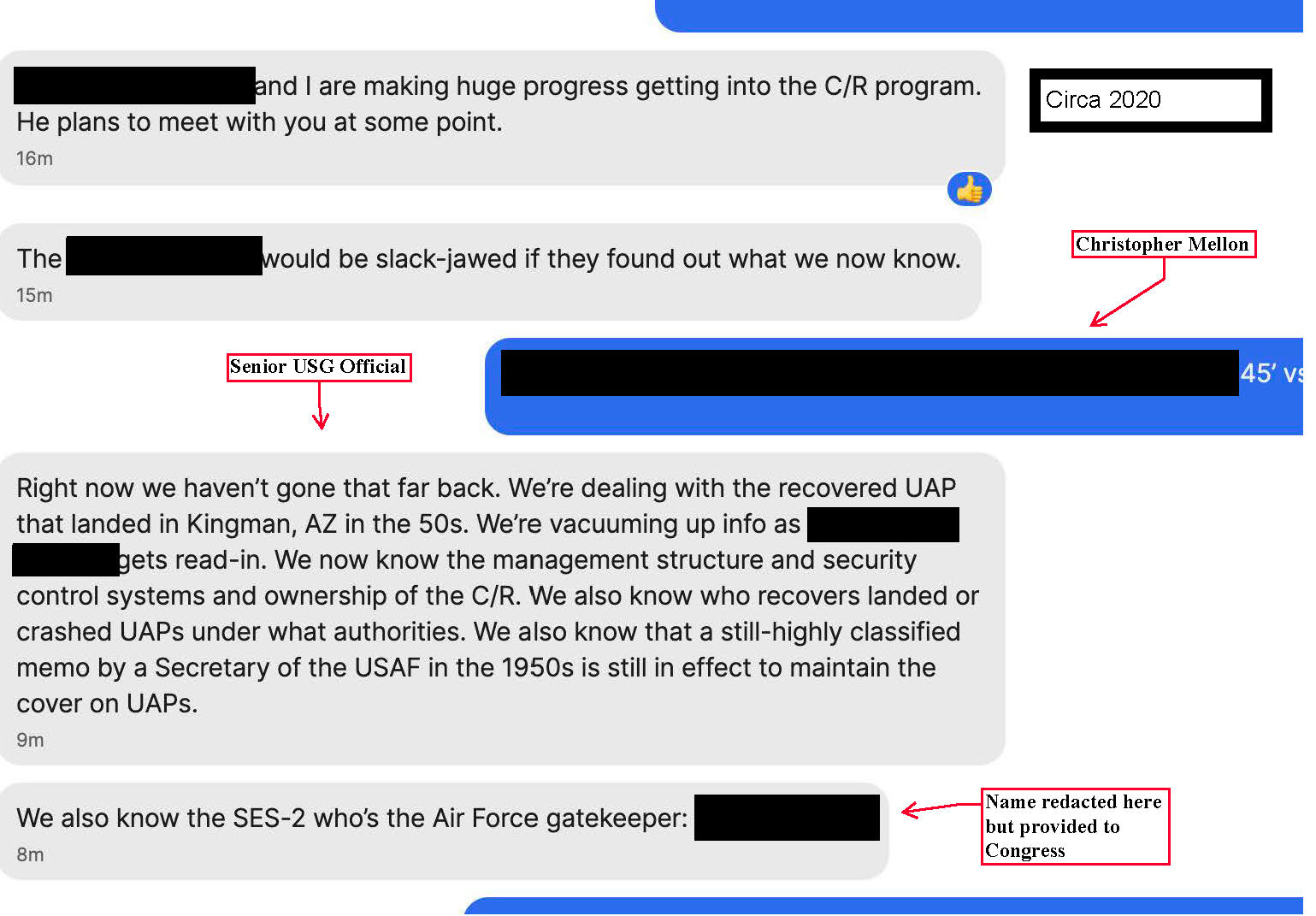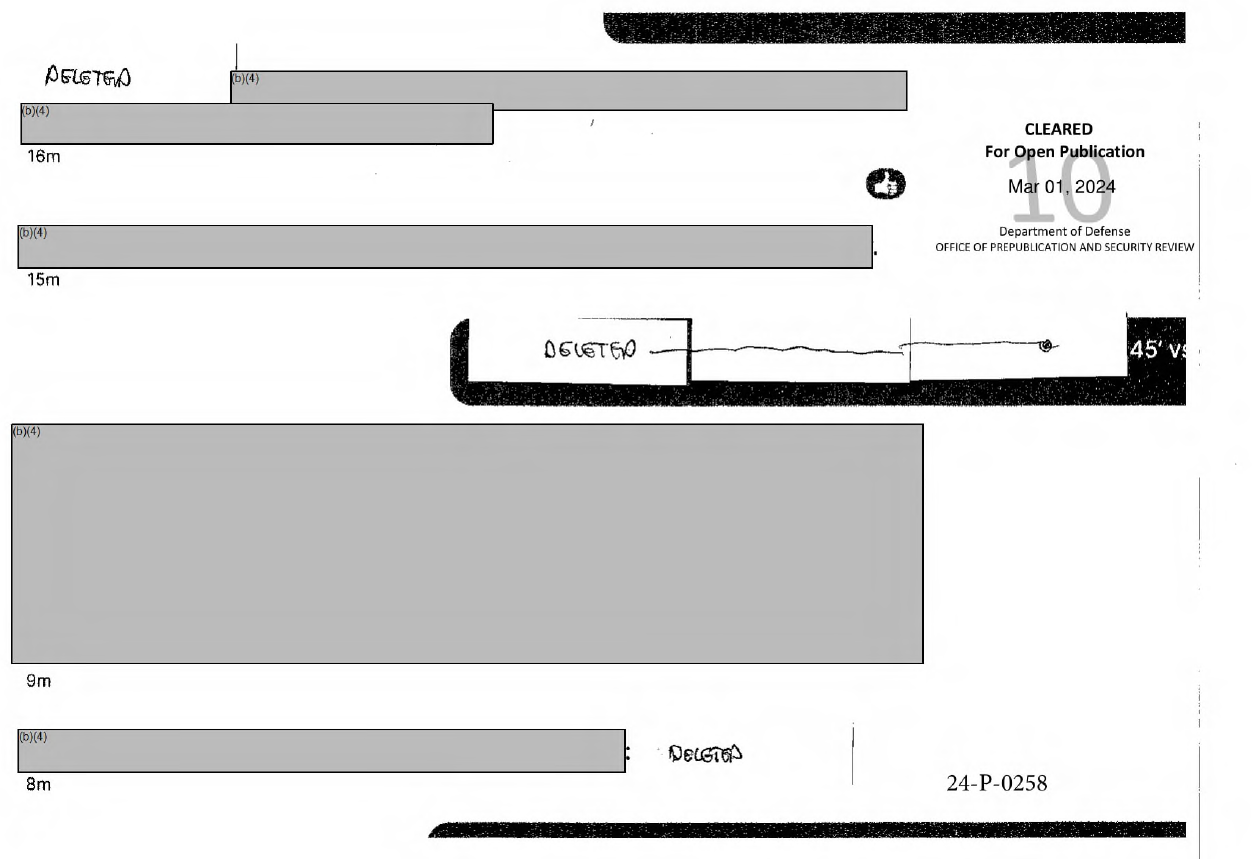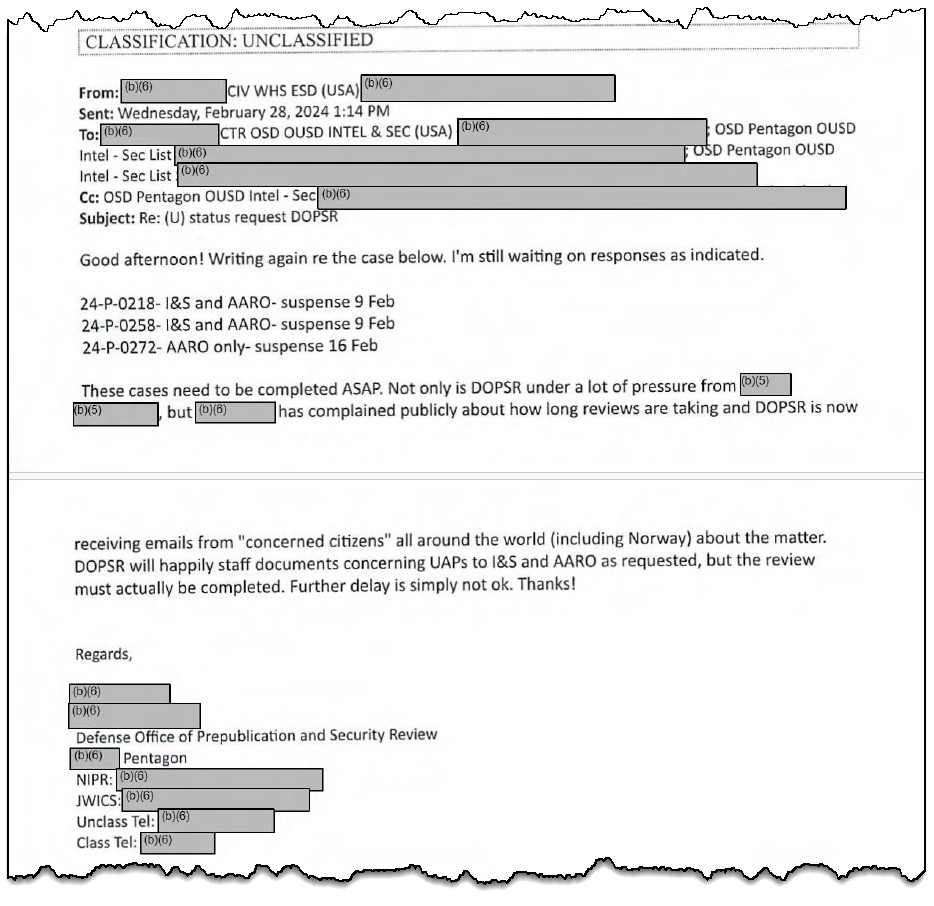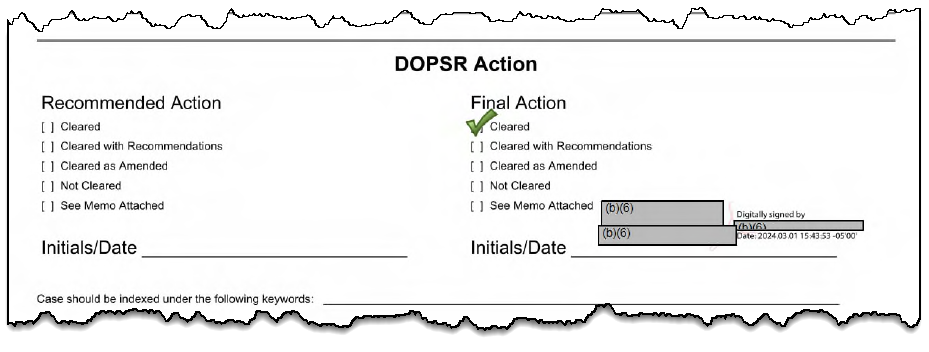
A newly released set of Defense Department documents reveals how the Pentagon handled former Deputy Assistant Secretary of Defense for Intelligence Christopher Mellon’s request to publish a message he said referenced an alleged effort to exploit “recovered off-world technology.” The records also reveal that Mellon’s first attempt to submit the material was returned to him after a DOPSR employee deemed his three-page mailed package a “security threat,” a detail he did not disclose in his public article.
The documents, sent to The Black Vault under FOIA case 24-F-1134, include Mellon’s original submission to the Defense Office of Prepublication and Security Review (DOPSR), internal emails, coordination records, and the March 1, 2024 approval that cleared him to release the message.
The 17 pages released by the Office of the Secretary of Defense (OSD) document DOPSR’s handling of Mellon’s submission from January through March 2024. The records show repeated delays, escalating internal pressure, and direct involvement from the All-Domain Anomaly Resolution Office (AARO), which was tasked with coordinating on the review.
Mellon’s Submission: A Message Alleging Access to a Recovery Program
The FOIA file begins with Mellon’s January 19, 2024, email to DOPSR, in which he submitted the text message screenshot he later published publicly. Mellon wrote that he was seeking confirmation “to confirm it is not classified,” and noted that a submission mailed earlier had been returned “because some employee deemed it a security threat.”
In that letter, Mellon explained that the message was sent to him “some years ago” by a former DoD employee alleging they were “being read into a program involving the exploitation of recovered off-world technology”. Mellon also indicated he had “redacted the name of the alleged ‘gatekeeper’” and emphasized that he respected the confidentiality of the source.
He informed DOPSR that his intent in releasing the material was to show “why I have taken such extraordinary claims seriously,” but also adding that he did “not have a position on the validity of the allegations” as he hears “credible claims, but also credible denials.”
Internal Confusion, Delays, and Pressure
The released emails show that by late February 2024, DOPSR was struggling to obtain required reviews from AARO and the Office of the Under Secretary of Defense for Intelligence and Security (I&S). On February 20, a DOPSR official wrote: “These cases need to be completed ASAP. Not only is DOPSR under a lot of pressure from [ redacted ], but [ redacted ] has complained publicly about how long reviews are taking and DOPSR is now receiving emails from ‘concerned citizens’ all around the world (including Norway) about the matter.” It goes on to state that, “Further delay is simply not ok.”
The delays also appear to reflect procedural issues. One email states that DOPSR staff were “attempting to assign down for USI review” because the system “isn’t currently cooperating,” while other messages note that AARO responses were “not there” from CATMS, the DoD’s coordination tracking system.
AARO and I&S Ultimately Approve the Release
Despite the coordination issues, both reviewing authorities ultimately issued “NO OBJECTION” determinations.
The released SD Form 403 shows the official worksheet signed on March 1, 2024. AARO’s confirmation, according to a memorandum for the record included in the FOIA release, states that “AARO response coordinated with his leadership and is for AARO.” I&S also returned a “NO OBJECTION as Received” notice on February 9, 2024.
The approval stamp, dated March 1, 2024, appears on the version later published by Mellon in April 2024, when Mellon published the message and an accompanying explanation. In it, he emphasized that he received the text years earlier from “a senior government official” who he said “had plausible access and was high-ranking,” and whose claim of access to a crash retrieval program was why he believed at least some allegations merited attention.
He also acknowledged that the sender later told him they were denied access to the alleged program and had not seen any recovered craft.
The newly released FOIA documents do not validate or contradict Mellon’s claims or the claims within the Signal messages. Instead, they reveal the internal pathway through which the Pentagon processed and ultimately approved his request to release the material.
While the content of the message Mellon sought to publish had already been public since April 2024, this FOIA release marks the first time the government’s internal handling of his submission has been documented.
###
Document Archive
 FOIA Case 24-F-1134 Release Package [19 Pages, 2.5MB]
FOIA Case 24-F-1134 Release Package [19 Pages, 2.5MB]
 Loading...
Loading...Follow The Black Vault on Social Media:

